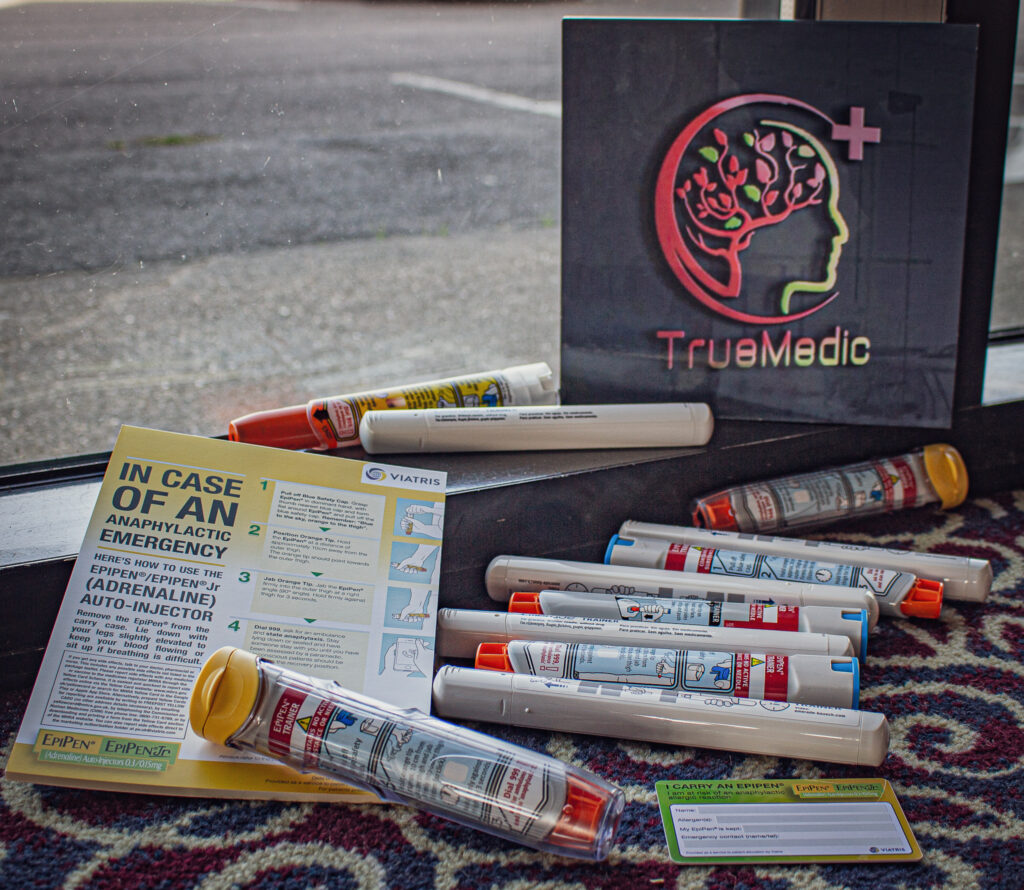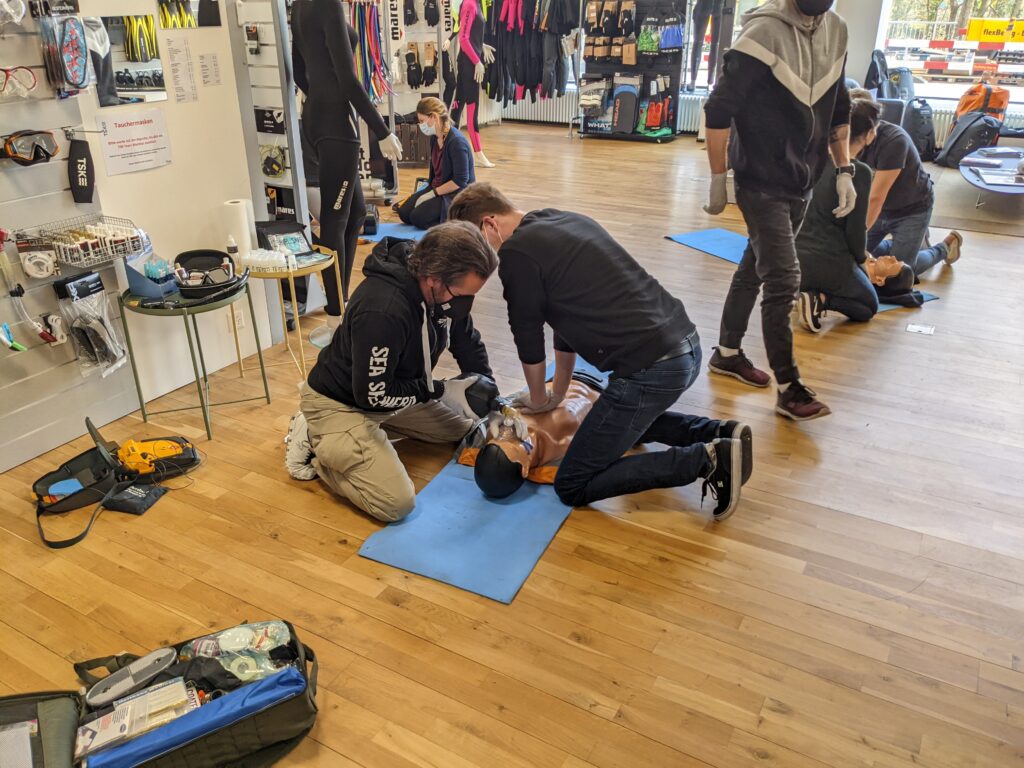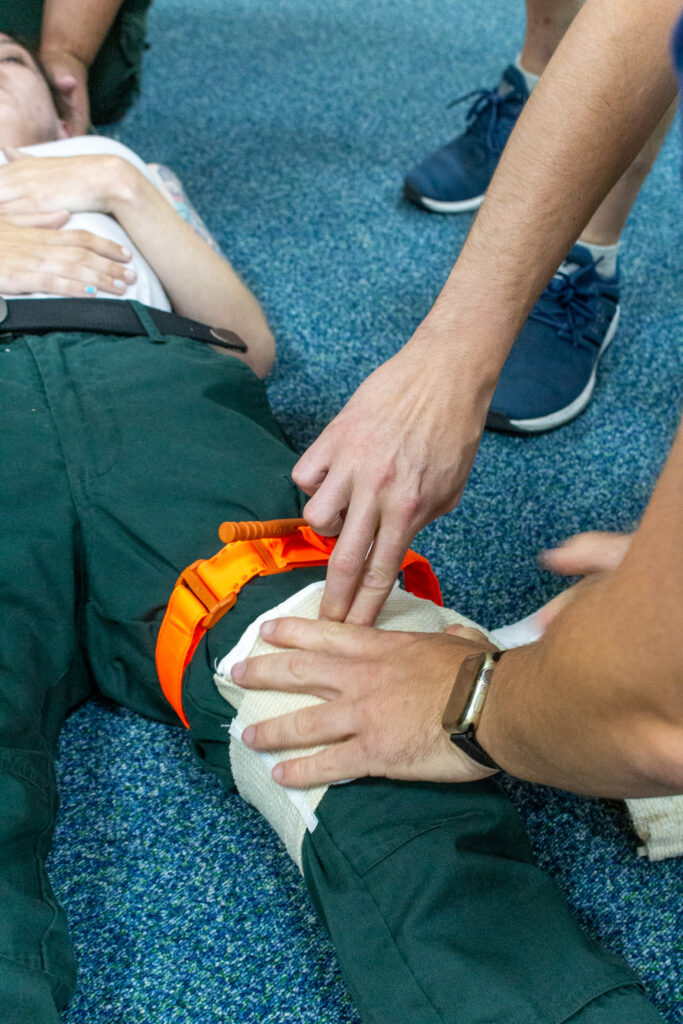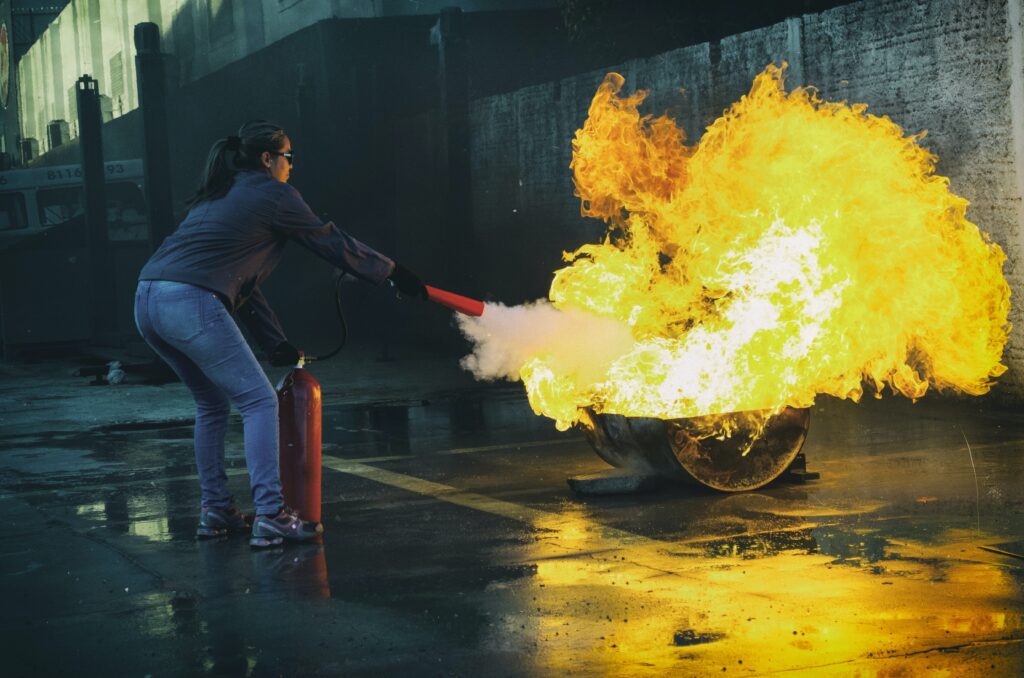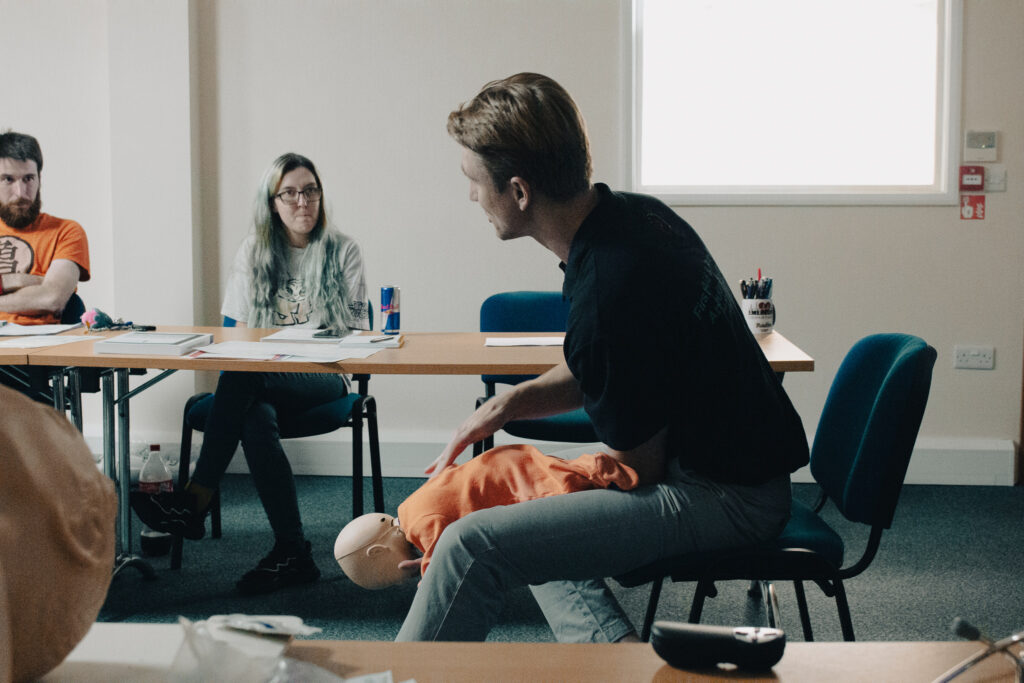We all have been in a situation where we have seen someone hurt themselves and not know what to do. It always shocks us, even something as small as a paper cut. First aid is the assistance given to any person suffering a sudden illness or injury, with care provided to preserve life, prevent the condition from worsening, or promote recovery. The basics of first aid can save a life by giving proper care to the injured person until they receive complete medical treatment.
From a little injury to a severe one, first aid is always required and helpful. If a person is not trained in first aid, there are chances that they might do more harm than good.
Many of us think first aid is required during major emergencies, but the truth is that it can be used in our everyday lives. This blog explores some of the reasons why having basic first-aid knowledge is essential.

Reasons Why Basics of First Aid Knowledge is Essential
Everyday life is full of surprises, some of which can be dangerous. No one knows when they will face an accident or emergency, so it is always better to be prepared for anything. Here are seven reasons why you should learn basic first aid:

Saves Life From Danger
If you have basic first aid knowledge, you can easily save a life in danger.
You never know when someone close to you can get into an accident, and your first aid skills might be the only thing standing between life and death. If you know the basics of first aid significantly increase the chances of survival in an emergency.
Just think for a moment, a man has a heart attack, and you know how to perform CPR. The help you will provide to that man might change his whole life.
According to the American Heart Association [1], Only 46% of people who experience an OHCA get the help they need before professional medical help arrives. An emergency could take place anywhere, inside your home, at your workplace or outside to a random stranger.
Reduces Recovery Time

Generally, the recovery time from an injury is shorter when basic first aid is administered immediately after the damage occurs. It helps to reduce pain and swelling and speeds up the healing process.
If you have a cut on your hand, for example, and you clean and bandage it correctly, the healing process will be faster than if you let the wound open to the air.
First aid also helps to prevent infections by cleaning and dressing wounds. Infections can delay the healing process and make it more painful, so it is always better to be safe than sorry.
Red cross [2] states that only one in 20 knows how to deal with emergency bleeding, which can often be the difference between life and death.
Prevents Further Injury
Basic first-aid knowledge can help you to avoid further injury. For example, if someone has a broken bone, it is essential to immobilize the limb to prevent further damage. If someone has a head injury, it is vital to keep them still to avoid additional harm.
We all know ambulances and medical professionals take some time to reach the patient. When any person around you is in pain or gets injured, it is our moral and social responsibility to help them before medical assistance arrives. This is where the basics of first aid come in handy.
Build Confidence To Act In An Emergency

Having the most basic first-aid knowledge [3] can give you the confidence to act in an emergency situation. When someone is injured or suddenly falls sick, you can easily panic and freeze up.
However, knowing what to do and how to help can make all the difference.
Sometimes, a person in a critical condition might need CPR or mouth-to-mouth resuscitation, and if you know how to do this, it could save their life and, in turn, gives you confidence that you can act in an emergency situation.
Prevents The Situation From Becoming Worst
The basics of first aid also prevent the situation from worsening. If someone has a cut, you would know how to clean and dress the wound to prevent infection.
If someone has been burnt, you would know how to cool the area and stop the burning process. These are just some examples of how first-aid can help prevent a bad situation from worsening.
Eases Pain and Discomfort
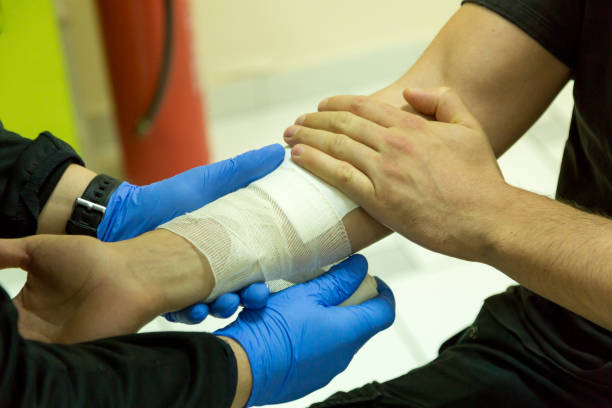
Not all the accidents or injuries you’ll experience will be major. Sometimes, it’ll only be a small cut or a bruise. However, even these seemingly minor injuries can cause pain and discomfort.
With some basic first aid knowledge, you’ll be able to quickly and effectively treat these injuries, which will help ease the pain and discomfort you’re feeling. If someone has a little cut, apply some pressure to stop the bleeding, then put on a band-aid.
Encourages Healthy And Safe Living
By learning about first aid, you’ll also be able to encourage healthy and safe living among those around you.
You can teach your friends and family members about safety and how to respond appropriately in an emergency. This knowledge will help keep them safe in their everyday lives and a crisis.
A healthy and safe lifestyle is something that everyone should strive for, and by learning about first aid, you can help to promote this goal.
FAQs
Can I provide first aid without any prior training?
Although it is possible to provide first aid without any prior training, it is highly recommended that you receive formal training before attempting. This is because many potentially life-saving techniques can be used during a first aid emergency, and you must know how to execute them properly.
How long does it take to receive first aid training?
The length of time it takes to receive first aid training varies depending on the type of training you receive. Some basic courses can be completed in just a few hours, while more comprehensive ones may take several days or weeks to complete.
Can I receive first aid training online?
Yes, many online courses can provide you with the necessary skills and knowledge to perform basic first aid. However, it is essential to make sure that you choose a reputable and accredited course to ensure that you are receiving high-quality instruction.
References
[1]https://cpr.heart.org/en/resources/cpr-facts-and-stats

